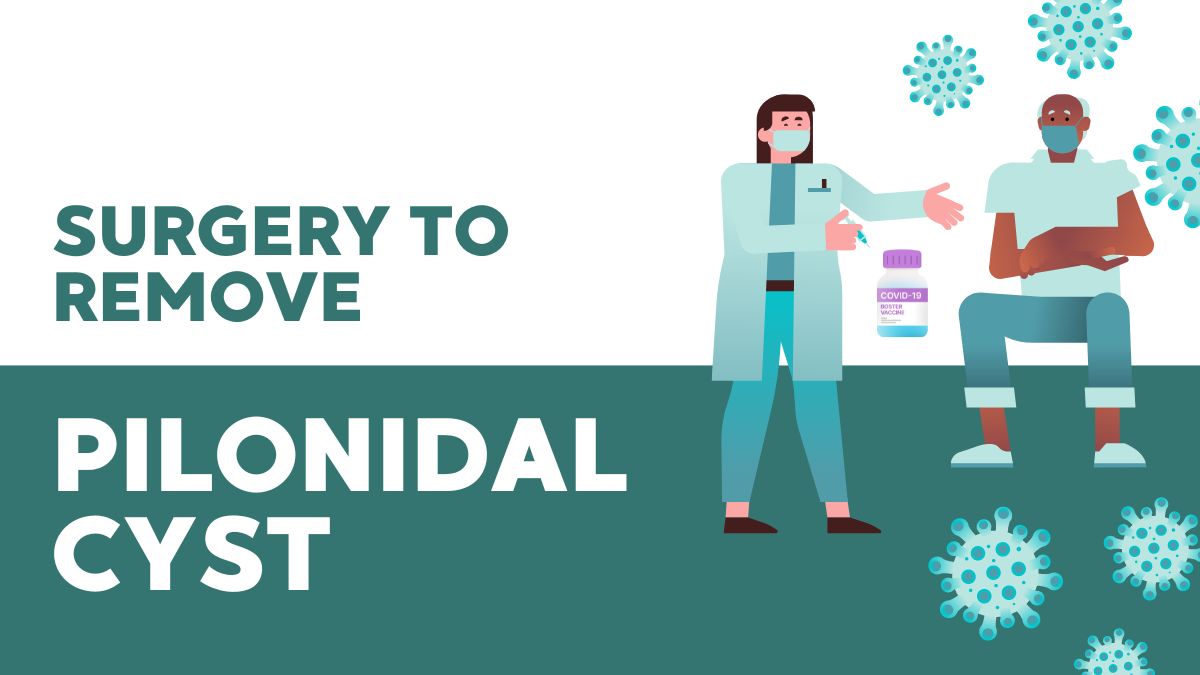Health & Medicine
Effective Sciatic Nerve Pain Treatment: Finding The Right Back Pain Doctor In Nj
by Author
-
Monday, October 30, 2023
339 Views
Sciatic nerve pain, often referred to as sciatica, is a common condition that affects countless individuals. The pain can be debilitating, making even simple tasks seem impossible. Finding the right back pain doctor in NJ who specializes in sciatic nerve pain treatment is essential for regaining your quality of life. In this comprehensive guide, we will explore the causes, symptoms, and various treatment options available to help you make an informed decision on the best path to relief.
Understanding Sciatic Nerve Pain
Sciatic nerve pain is a condition that occurs when the sciatic nerve, the largest nerve in the body, becomes irritated or compressed. This nerve extends from the lower back, through the buttocks, and down the back of each leg. Sciatica is typically characterized by shooting, burning, or tingling pain that radiates down one or both legs. It can also cause numbness and muscle weakness. The most common causes of sciatic nerve pain include:
- Herniated Disc: A herniated or slipped disc can compress the nerve roots that make up the sciatic nerve.
- Spinal Stenosis: This condition occurs when the spinal canal narrows, putting pressure on the nerve roots.
- Spondylolisthesis: A condition where one vertebra slips forward over another, potentially pinching the sciatic nerve.
- Piriformis Syndrome: The sciatic nerve can also be compressed by the piriformis muscle in the buttocks.
- Trauma or Injury: Accidents or falls may cause direct damage to the sciatic nerve.
Seeking The Right Back Pain Doctor In NJ
When faced with sciatic nerve pain, it is crucial to find a qualified back pain doctor nj who can accurately diagnose the condition and recommend the most effective treatment. Here are some steps to help you in your search:
- Ask for Referrals: Begin by asking your primary care physician for recommendations. They can refer you to a specialist who is experienced in treating sciatic nerve pain.
- Research Credentials: Look for a back pain doctor with board certification in pain management, neurology, or orthopedics. These specialists often have the expertise needed to diagnose and treat sciatica.
- Check Reviews: Read patient reviews and testimonials to gauge the doctor’s reputation and the satisfaction of their previous patients.
- Consultation: Schedule a consultation with the prospective back pain doctor. During this appointment, ask about their experience with sciatic nerve pain and discuss your symptoms and concerns.
- Treatment Options: Inquire about the treatment options the doctor offers for sciatica. An experienced practitioner will provide a range of non-invasive and invasive treatments.
Effective Sciatic Nerve Pain Treatment
Once you’ve found the right back pain doctor in NJ, it’s important to understand the various treatment options available for sciatic nerve pain. Treatment plans are typically tailored to the specific cause and severity of the condition. Here are some common sciatic nerve pain treatment methods:
- Physical Therapy: Physical therapy is often recommended to strengthen the muscles surrounding the sciatic nerve, improve flexibility, and alleviate pressure on the nerve.
- Medications: Non-prescription pain relievers, such as ibuprofen, or prescription medications like muscle relaxants or corticosteroids, may be prescribed to manage pain and reduce inflammation.
- Epidural Steroid Injections: These injections deliver anti-inflammatory medication directly to the affected area to reduce swelling and alleviate pain.
- Chiropractic Care: Chiropractors may use spinal adjustments and manipulations to alleviate sciatic pain by correcting misalignments.
- Acupuncture: This traditional Chinese practice involves inserting thin needles into specific points on the body to help relieve pain and stimulate natural healing.
- Surgery: In severe cases where conservative treatments fail, surgical options like discectomy, laminectomy, or spinal fusion may be considered to relieve pressure on the sciatic nerve.
- Lifestyle Modifications: Back pain doctors often recommend lifestyle changes, such as maintaining a healthy weight, practicing good posture, and regular exercise, to prevent and manage sciatic pain.
Importance Of Early Intervention
Early intervention is crucial when dealing with sciatic nerve pain. Ignoring the condition or failing to seek timely treatment can lead to worsening symptoms and potential complications. Chronic sciatica can cause muscle weakness and even bladder or bowel dysfunction in severe cases. Therefore, it’s essential to consult a qualified back pain doctor in NJ as soon as you experience symptoms.
The Role Of Conservative Treatments
In many cases, sciatic nerve pain can be effectively managed with non-invasive treatments. These conservative approaches not only alleviate pain but also promote long-term healing and prevention. Physical therapy and specific exercises can play a vital role in this process.
Physical therapy involves a range of exercises designed to strengthen the muscles supporting the lower back and improve flexibility. The primary goals of physical therapy in sciatic nerve pain treatment include:
- Alleviating Pain: Physical therapists use techniques like ice and heat therapy, ultrasound, and electrical stimulation to reduce pain and inflammation.
- Muscle Strengthening: Specific exercises target the muscles that support the lower back, reducing pressure on the sciatic nerve.
- Improving Mobility: Physical therapy helps enhance flexibility, making it easier to perform everyday activities without discomfort.
- Posture and Ergonomics: Therapists provide guidance on proper posture and ergonomics to minimize stress on the spine and prevent future episodes of sciatica.
- Education: Patients are educated about their condition and taught techniques to manage and prevent sciatic pain at home.
While physical therapy may take time to yield results, it is a conservative and safe approach to treating sciatic nerve pain. Patients are encouraged to remain dedicated to their therapy and exercise regimens to achieve lasting relief.
Alternative Therapies For Sciatic Nerve Pain
In addition to traditional medical treatments, alternative therapies can complement sciatic nerve pain treatment. Two such therapies that are gaining popularity are chiropractic care and acupuncture.
- Chiropractic Care: Chiropractors focus on the musculoskeletal system, particularly the spine, to restore proper alignment. By making spinal adjustments, chiropractors aim to alleviate pain and improve nerve function. Many patients with sciatica report significant relief following chiropractic treatments.
- Acupuncture: This ancient Chinese practice involves inserting thin needles into specific points on the body. Acupuncture is thought to stimulate the release of natural pain-relieving chemicals and promote healing. While the effectiveness of acupuncture in treating sciatica varies from person to person, it is a non-invasive option worth considering.
The Decision To Undergo Surgery
Surgery is typically considered a last resort when conservative treatments fail to alleviate sciatic nerve pain. It is essential to have a thorough discussion with your back pain doctor in NJ before considering surgery. Surgical options for sciatica include:
- Discectomy: This procedure involves removing a portion of a herniated disc that is pressing on the sciatic nerve. It can be done through traditional open surgery or minimally invasive techniques.
- Laminectomy: In cases of spinal stenosis, a laminectomy may be performed to remove the back part of a vertebra to create more space for the nerve roots.
- Spinal Fusion: Spinal fusion is a procedure where two or more vertebrae are joined together to stabilize the spine and prevent movement that might irritate the sciatic nerve.
Surgery carries inherent risks, including infection, bleeding, and the potential for scar tissue formation. Recovery time can vary, and it is essential to follow post-operative instructions diligently. Your back pain doctor will help you understand whether surgery is the right choice for your specific case and what to expect during the process.
Lifestyle Modifications For Sciatic Pain Prevention
Preventing sciatic nerve pain is just as important as finding effective treatment. Making certain lifestyle changes can significantly reduce the risk of recurrence. Here are some practical tips to consider:
- Maintain a Healthy Weight: Excess weight puts additional stress on the lower back, potentially triggering sciatic pain. Adopt a balanced diet and regular exercise routine to achieve and maintain a healthy weight.
- Proper Posture: Practice good posture whether sitting or standing to reduce strain on your back and spine. Ergonomic chairs and workstations can help maintain proper posture during long hours at the desk.
- Regular Exercise: Engage in regular physical activity to strengthen your core and lower back muscles. Activities such as swimming, walking, and yoga can be particularly beneficial.
- Correct Lifting Techniques: When lifting heavy objects, use your legs and not your back. Bend at the knees and keep the object close to your body.
- Supportive Mattress and Pillow: Invest in a comfortable, supportive mattress and pillows that promote proper spinal alignment while sleeping.
- Smoking Cessation: Smoking can contribute to degeneration of spinal discs. Quitting smoking can be a positive step toward spine health.
- Stress Management: High stress levels can lead to muscle tension and exacerbate sciatic pain. Practice stress-reduction techniques, such as meditation or deep breathing exercises.
By making these lifestyle changes, you can reduce the likelihood of future sciatic episodes and improve your overall spinal health.
Conclusion
Sciatic nerve pain can be a challenging and debilitating condition, but it is treatable. Finding the right back pain doctor in NJ is the first step towards effective sciatic nerve pain treatment. Whether you opt for conservative therapies, alternative treatments, or even surgery, it’s crucial to work closely with your healthcare provider to develop a personalized treatment plan.
Remember that early intervention, along with a commitment to lifestyle changes, can significantly improve your chances of managing and preventing sciatic pain. Your journey to relief starts with seeking the right medical guidance and taking proactive steps toward recovery and lasting well-being.






